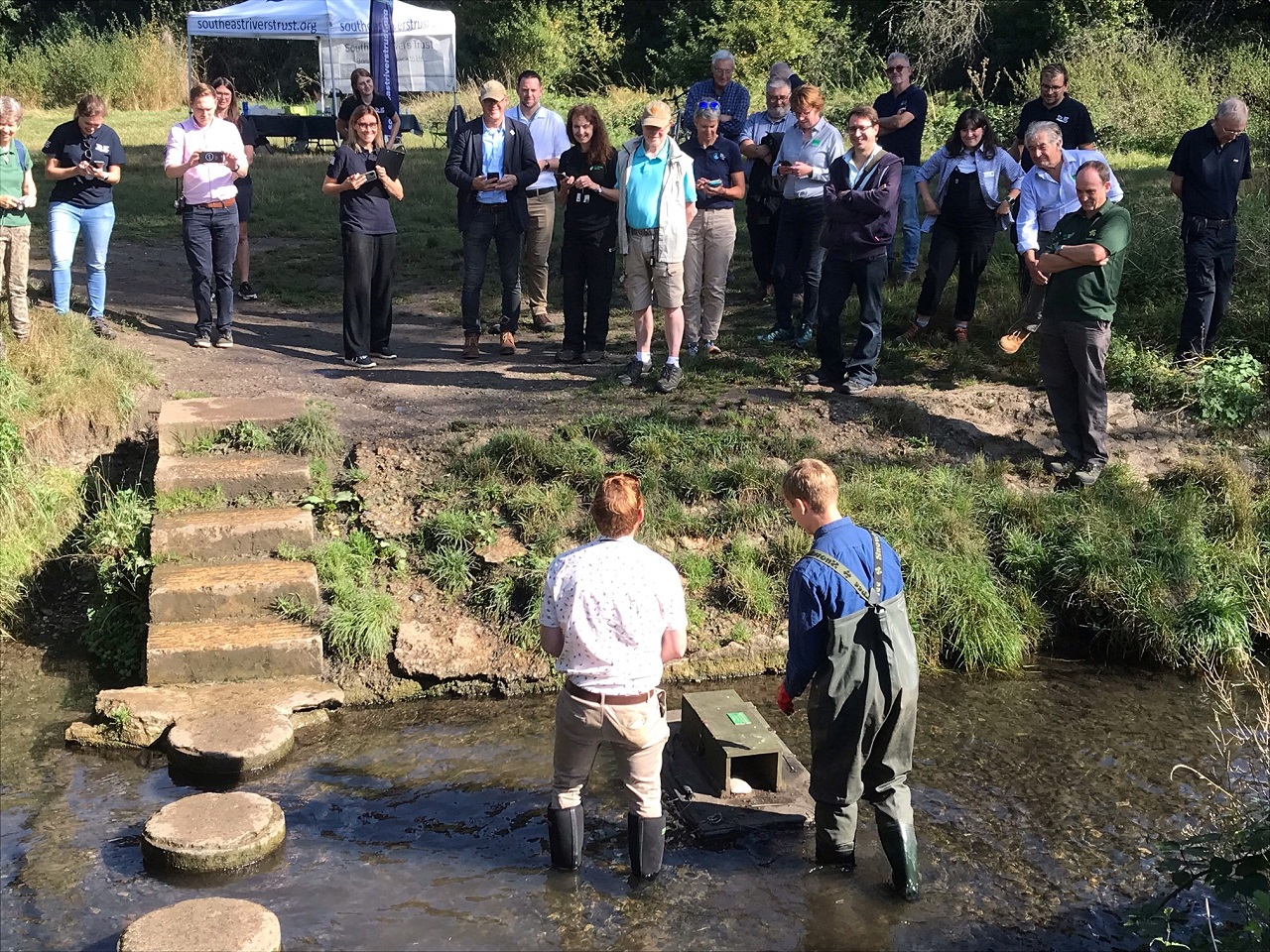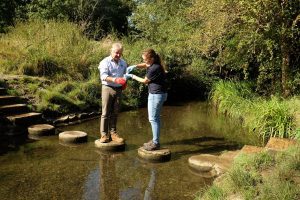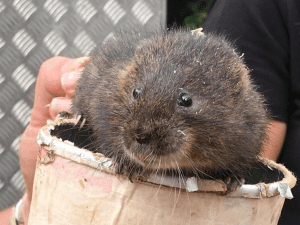The South East Rivers Trust (SERT) has been awarded £393,000 as part of Natural England’s Species Recovery Programme, which aims to support targeted action to recover the UK’s most endangered species.
On 14th September, 2023, Natural England chose SERT to host the scheme’s launch at the Hogsmill Stepping Stones in Ewell, Surrey, where the fortunes of water voles, eels and trout will be boosted by the project.
A total of 63 projects across the country have been awarded a share of £14.5 million by Natural England to help recover 150 species nationwide. Following a competitive application round, the money will be used by environmental charities, wildlife organisations, local authorities and charities to deliver the Nature Recovery Network.

The funding supports propagation, captive rearing, translocations, research and solution-trialling to find the best approaches to enable endangered wildlife to survive and flourish.
Some of the UK’s most iconic river wildlife has been in severe decline for decades, but now thanks to a generous grant awarded to SERT by Natural England, outcomes for rare and endangered wildlife and their habitat are about to improve on the Hogsmill river in South West London.
The WET Hogsmill project led by the South East Rivers Trust, will improve the habitat of the Hogsmill river, a chalk stream in South West London. There are only around 220 chalk streams worldwide meaning that this is an exceedingly rare and special habitat. The project will reintroduce Water Voles onto the river and create new habitats for both European Eel and Brown/Sea Trout. The project will run until Spring 2025.

Co-CEO of SERT, Dr Bella Davies said “We are thrilled to have been successful in our application to Natural England’s Species Recovery Grant to support the recovery of water voles, eels and native wild trout which have become near extinct on the Hogsmill river in South West London. The Hogsmill is a rare urban chalk stream meaning that it’s important for nature and an important resource for people too.
“Our project will restore river habitat and create backwaters where fish can take refuge from pollution by creating wetlands to improve water quality which will help reintroduce Water Voles which were once prevalent on the river. We are excited to see this much needed work begin on the ground to bring Water Vole, European Eel and Brown/Sea Trout back to the Hogsmill.”
The Hogsmill river is the first tributary of the non-tidal river Thames and a chalk stream making it a UK Biodiversity Action Plan Priority habitat. Despite its rarity and importance, the Hogsmill has suffered a wide range of pressures leading to decline and loss of habitats and species over the last century and beyond.
Water Vole numbers have declined sharply since the end of the 20th Century making them currently the UK’s fastest declining mammal with a 97% decrease in population. Once ubiquitous and found in their millions, they are now considered to be on the brink of extinction. Water Voles were once prolific on the Hogsmill but became locally extinct in 2017.
Partnering with Citizen Zoo, a conservation charity, SERT will release 150 Water Voles across two sites on the Hogsmill, supplementing 101 Water Voles previously released by Citizen Zoo in 2022. This will help to increase the genetic diversity of the population.

European Eel are also critically endangered with levels declining by 90-98% from historic figures. Eels migrate up rivers during their life span and recent surveys on the upper Hogsmill recorded just one eel in 2016 and three in 2022. The WET Hogsmill project will support the creation of a large wetland and backwater while also creating a more complex instream habitat which is favoured by European Eel.
Trout have been extinct on the Hogsmill since the 1900s, owing to 19 predominantly obsolete weirs barring their passage, and preventing them from reaching critical spawning grounds in the river’s headwaters. Over the past decade SERT has made 18 of these weirs passable for fish and other species by either removing them or installing technical fish passes or easements. In 2024 the final remaining weir will be made passable for multiple fish species including Brown/Sea Trout and European Eel. By spring 2025 these fish will once again be able to access and migrate throughout the whole river for the first time in over 200 years.
SERT will provide a wide range of complementary community education and engagement activities for members of the public, schools and local businesses. Planned activities include installation of an interactive nature trail, indoor and outdoor education sessions, and community talks to help local people and businesses understand how they can help protect rivers and wildlife.
There will also be several opportunities to volunteer. Those interested to learn more about the project and volunteering activities can sign up to our newsletter or bookmark our events calendar for more information.
Watch our Co-CEO Dr Bella Davies explain how the project will help species in the Hogsmill.
